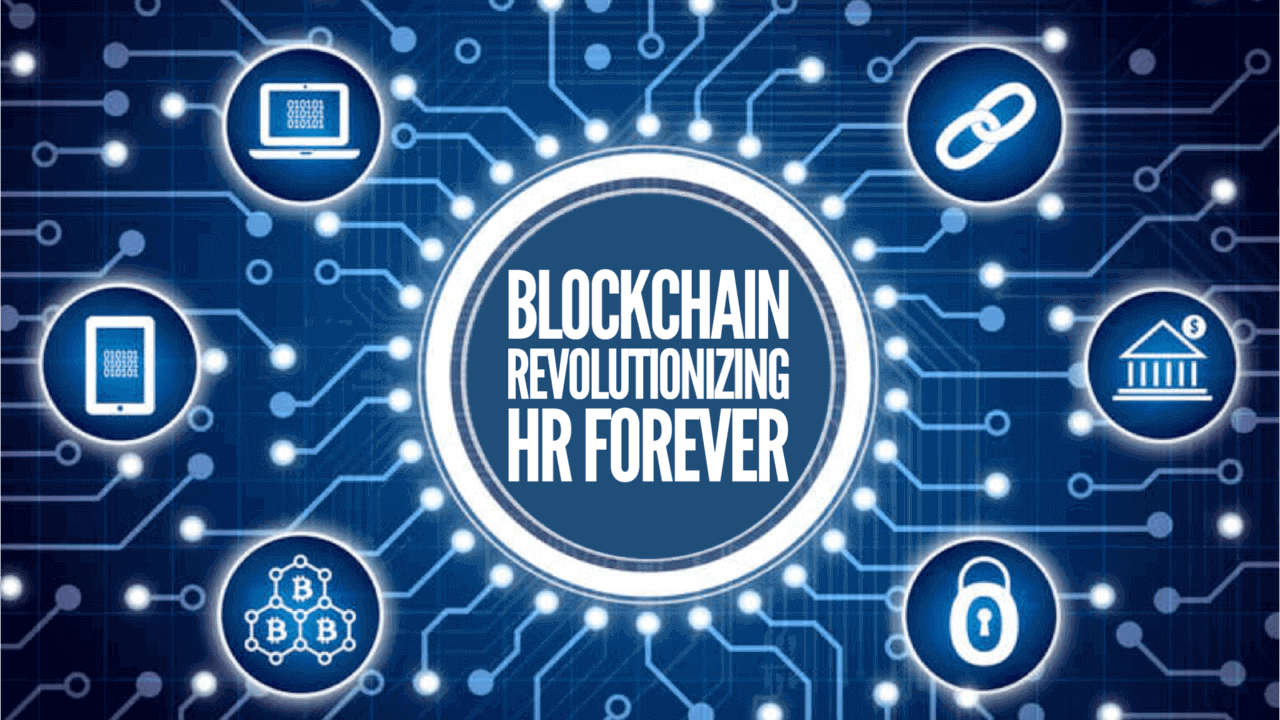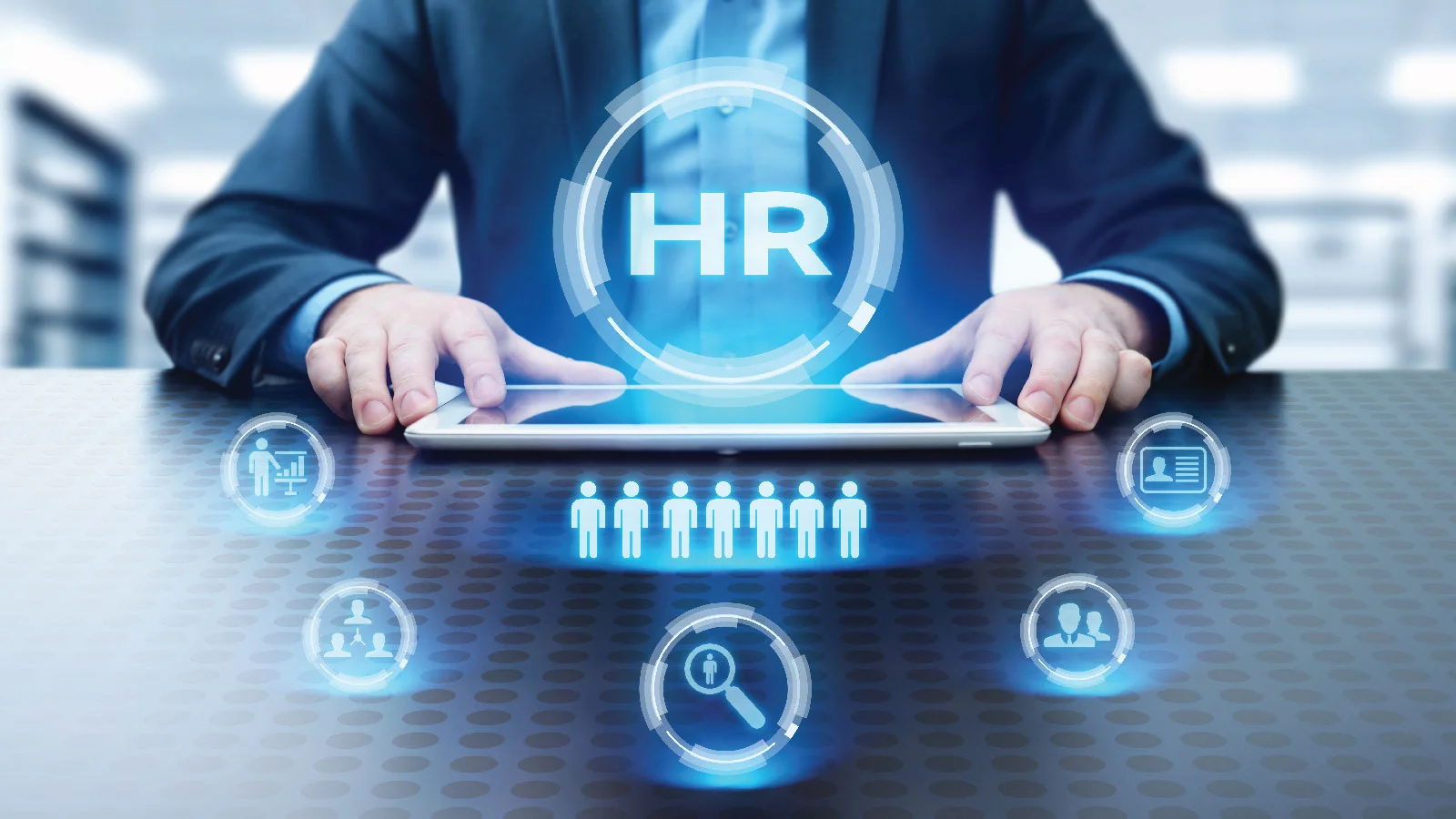Blockchain In Human Resources - 10 Innovative Strategies
Revolutionize HR with blockchain in human resources - Discover how blockchain technology is reshaping human resources management, ensuring transparency, security, and efficiency.
Author:Stefano MclaughlinReviewer:Camilo WoodFeb 14, 20248.9K Shares145K Views

In the ever-evolving landscape of blockchain in human resources, technology emerges as a game-changer, offering unparalleled transparency, security, and efficiency. Imagine a world where talent acquisition is streamlined, employee records are immutable, and payroll processes are seamless, all made possible through blockchain integration.
This transformative technology not only enhances trust between employers and employees but also revolutionizes traditional HR practices by eliminating intermediaries and minimizing errors. With blockchain, HR professionals can confidently navigate the complexities of personnel management, ensuring compliance, optimizing workflows, and ultimately fostering a more productive and inclusive workplace environment.
Harnessing The Power Of Blockchain
Here are 10 innovative blockchain solutions reshaping human resources strategies:
1. Decentralized Talent Marketplaces
Blockchain can be used to create secure and transparent platforms where employers and job seekers can connect directly, without the need for intermediaries. This can reduce costs and fees for both parties, and give workers more control over their careers. For example, Dock.io is a blockchain-based platform that allows users to create profiles that showcase their skills and experience, and connect with employers directly.
2. Secure And Verifiable Credentials
Blockchain can be used to store and issue educational certificates, professional licenses, and other important credentials. This can make it easier for employers to verify the qualifications of potential candidates, and reduce the risk of fraud. For example, Blockcertsis a blockchain-based platform that allows institutions to issue tamper-proof digital credentials to their students.
3. Smart Contracts For Automated Workflows
Smart contracts are self-executing contracts that can be used to automate many HR tasks, such as payroll, benefits administration, and performance management. This can save time and money for HR departments, and improve the accuracy and efficiency of these processes. For example, Jibrel Networkis a blockchain platform that allows companies to create and deploy smart contracts for a variety of HR tasks.
4. Tokenized Incentives And Rewards
Blockchain can be used to create and distribute tokenized incentives and rewards, such as loyalty points, referral bonuses, and performance-based compensation. This can motivate employees and improve engagement. For example, Gyftis a blockchain-based platform that allows companies to create and distribute tokenized rewards to their employees.
5. Global Workforce Management
Blockchain can be used to track and manage a global workforce, regardless of location. This can make it easier for companies to hire and manage talent from all over the world. For example, Workchainis a blockchain-based platform that helps companies manage their global workforce, including payroll, benefits, and compliance.
6. Decentralized Learning And Development
Blockchain can be used to create and deliver decentralized learning and development programs. This can make it easier for employees to access training and development opportunities, regardless of their location or schedule. For example, Educhainis a blockchain-based platform that allows companies to create and deliver decentralized learning and development programs to their employees.
7. Talent Sourcing And Acquisition
Blockchain can be used to improve the efficiency and effectiveness of talent sourcing and acquisition processes. For example, TRAX is a blockchain-based platform that helps companies source and acquire talent by connecting them with a network of pre-vetted candidates.
8. Performance Management And Feedback
Blockchain can be used to create a more transparent and secure system for performance management and feedback. This can help to improve employee engagement and development. For example, Kredilyis a blockchain-based platform that helps companies manage performance and feedback by providing a secure and transparent way to track employee progress.
9. Employee Benefits And Wellness
Blockchain can be used to improve the administration and delivery of employee benefits and wellness programs. For example, Wellcoinis a blockchain-based platform that helps companies manage their employee benefits and wellness programs by providing a secure and transparent way to track employee participation and engagement.
10. Data Security And Privacy
Blockchain can be used to improve the security and privacy of employee data. This is important because HR departments collect a lot of sensitive data about their employees. For example, Bluzelleis a blockchain-based platform that helps companies secure and protect their employee data by providing a decentralized and tamper-proof way to store and manage it.
Facilitating Payroll & Benefits Management
Facilitating payroll and benefits management is crucial for any organization, and there are a number of innovative solutions available to streamline these processes. Whether you're looking for efficiency, automation, or improved employee experience, I can help you explore different options:
Technology Solutions
- Payroll Software -Dedicated payroll software automates calculations, tax withholdings, and filings, ensuring accuracy and compliance. Consider features like integrations with timekeeping systems, self-service portals for employees, and mobile accessibility.
- Human Resource Information Systems (HRIS) -HRIS platforms offer a comprehensive solution for managing employee data, including payroll, benefits administration, and other HR functions. This simplifies data synchronization and eliminates the need for multiple systems.
- Blockchain Technology -Though still in its early stages, blockchain can offer secure and transparent record-keeping for payroll and benefits. This can streamline audits, reduce fraud risks, and improve data management.
Other Approaches
- Outsourcing -Payroll and benefits administration can be outsourced to specialized service providers, saving time and resources for your internal team. However, carefully evaluate service fees and ensure data security measures.
- Shared Services Model -Organizations within a group can share resources and expertise for payroll and benefits administration, achieving economies of scale and improved efficiency.
- Self-Service Portals -Empower employees to access paystubs, benefits information, and make changes to their elections through secure online portals. This reduces administrative burden and improves employee self-sufficiency.
Challenges For Blockchain Adoption In HR
Blockchain holds immense potential to revolutionize HR processes, but its adoption presents some significant challenges:
1. Technical Challenges
- Scalability and Performance -Current blockchain technology struggles with processing large volumes of transactions quickly, which can limit its application in large organizations.
- Interoperability -Different blockchain platforms lack standardized protocols, creating interoperability issues that hinder seamless data exchange.
- Privacy and Security Concerns -While inherently secure, blockchain can raise privacy concerns regarding employee data. Finding the right balance between transparency and privacy is crucial.
2. Organizational Challenges
- Lack of Expertise -The technology is relatively new, and finding skilled professionals to develop and implement blockchain solutions can be challenging.
- Change Management -Shifting to a decentralized system requires organizational culture change, which can be met with resistance from employees and management alike.
- Cost and ROI -Implementing blockchain solutions can be expensive, and the return on investment can be difficult to quantify in the short term.
3. Regulatory Challenges
- Unclear Regulations -Lack of clear regulations and legal frameworks surrounding blockchain use in HR raises uncertainty and compliance concerns.
- Data Governance -Determining data ownership and access control in a decentralized system requires navigating complex legal and ethical considerations.
How Blockchain Technology Could Impact HR And The World Of Work?
Blockchain technology, known for its secure and transparent data management, holds immense potential to reshape the landscape of Human Resources and the overall world of work. Here are some key areas where its impact could be felt:
Recruitment And Talent Management
- Decentralized Talent Marketplaces -Eliminating intermediaries, connecting employers directly with job seekers, and creating a more transparent and cost-effective hiring process.
- Secure and Verifiable Credentials -Blockchain-based certificates and licenses could reduce fraud and simplify verification for potential candidates.
- Smart Contracts for Automated Workflows -Automating tasks like candidate screening and offer management, freeing up HR resources for more strategic efforts.
Employee Engagement And Retention
- Tokenized Incentives and Rewards -Recognizing and rewarding employees with tamper-proof, transferable tokens that could be exchanged for rewards or used across different platforms.
- Decentralized Learning and Development -Providing employees with self-directed, secure access to personalized learning opportunities through blockchain platforms.
- Performance Management and Feedback -Creating a transparent and secure system for tracking performance, providing immutable feedback, and encouraging employee development.
Data Security And Privacy
- Enhanced Data Security -Blockchain's inherent immutability and cryptography can safeguard sensitive employee data from breaches and unauthorized access.
- Increased Data Ownership and Control -Employees could have more control over their data, deciding who can access it and for what purpose.
- Improved Regulatory Compliance -Blockchain can simplify compliance with data privacy regulations like GDPR by providing an auditable and transparent data trail.
Other Potential Impacts
- Global Workforce Management -Facilitating easier hiring and management of international talent through secure and transparent record-keeping and payroll systems.
- Decentralized Autonomous Organizations (DAOs) -Enabling the emergence of new organizational models where employees have more ownership and decision-making power.
- Freelancing and Gig Economy -Providing a secure and efficient platform for independent workers to manage contracts, payments, and reputation.
FAQ's About Blockchain In Human Resources
How Can Blockchain Be Used In HR?
Through its decentralised and immutable ledger, blockchain can safeguard sensitive employee data, streamline recruitment and onboarding by verifying candidate credentials, automate payroll management with smart contracts, and enhance the management of employee benefits.
What Is Blockchain In HR Interesting Use Cases For Human Resources?
Another way that blockchain might change HR is by providing employees with more control over their own data. For example, employees could use a blockchain-based system to securely store their own personal information, including their skills and qualifications.
Is HR Ready For Blockchain?
In 2023, human resource departments have come to be recognized for the pivotal role they play in facilitating workplace transformations. As the backbone of an organization, embracing the future of work begins with HR. Today, some of the most radical and innovative shifts involve their adoption of blockchain technology.
Conclusion
The integration of blockchain technology into human resources is poised to redefine the very fabric of organizational management. Its ability to enhance transparency, security, and efficiency opens up a realm of possibilities for HR professionals to innovate and optimize their processes. As we continue to witness the rapid evolution of workplace dynamics and the increasing importance of data integrity, blockchain stands out as a beacon of trust and reliability.

Stefano Mclaughlin
Author

Camilo Wood
Reviewer
Latest Articles
Popular Articles
